Starship Solarpunk
Generation Exile is a solarpunk city-building game that's out of this world
In this substack we bring you an exclusive interview with the developers of a solarpunk inspired city-building game called Generation Exile.
Alex Holland (SolarPunk Stories): Nels, why don’t you kick off by telling us a bit about Sonderlust Studios?
Nels Anderson (Sonderlust Studios): We’re a team of experienced game developers from around the world. I worked on a first-person narrative exploration game called Firewatch.
Other team members have worked on games like Gone Home, Far Cry 5, and Mini Metro. It’s a pretty broad suite of experiences that I think keeps things interesting and dynamic.
Alex: Okay, so in a nutshell, what is Generation Exile?
Nels: Generation Exile is a solarpunk, turn-based city-builder set aboard a generation ship making a multi-century journey from an ecologically ravaged Earth to find a new home for humanity.
The game merges intricate gameplay systems with player-driven stories. All the characters and narrative events are procedurally generated, making each player’s experience unique.
Alex: So, there are multiple narrative paths?
Nels: Exactly. The game is reactive, not branching in a linear way like Mass Effect. It’s more like a web of interconnected moments driven by the game’s simulation and the player’s decisions.
Alex: Why have you described the game as being solarpunk?
Nels: Solarpunk is a sub-genre that offers hope and aspiration, unlike cyberpunk or other darker visions. It explores how technology, ecology and community can work together to create a sustainable, just planet. It’s a world we might actually want to live in, which is refreshing compared to a lot of dystopian science fiction. Being a person who lives in the world of The Last of Us would really suck right?
Alex: Definitely.
Nels: These post-apocalyptic games can be very entertaining to play but their message is quite individualistic. It’s how will I survive? How do I protect myself from this looming disaster, not how can we find a way to make something better. That type of thinking isn’t going to help us avoid these terrible futures becoming real.
We’re not trying to provide hamfisted lessons about how things are supposed to be, like some sort of morality tale. We see solarpunk as an opportunity to talk about the world that we'd like in a way that’s entertaining and engaging.
It’s a way to explore ideas and technologies through human stories and drama. Playing this game, people can come to learn about things like methane capture technology without it being super dull or worthy.
Alex: Where did you first come across solar punk?
Nels: That's a good question. I don't know if I recall. I feel it’s more of an aesthetic vibe we just absorbed. Like those images of big brutalist structures covered in plants, that type of thing.
Alex: It's probably a sign of the growing success of our genre that you can't remember a specific piece of media. You've just picked solarpunk up.
Nels: Yeah, as a label it presents itself relatively well, right? Solarpunk has the power of a good name, of a good label, it communicates an idea with specificity but doesn't demand a bunch of prior understanding, right? It carries meaning with it, but not in a way that’s either so vague it means nothing, or so confined that unless you know tons about it you’re lost.
I think it’s been successful as a shorthand for a whole set of ideas.
Alex: We’ve done a deep-dive article “What is solarpunk? One thing or many?” which resonates a lot with what you’re saying and also looks into the various shades of solarpunk. There's one axis in it which goes from fantastical to rooted, then thrilling to happy.
We’d normally classify things set out in deep space, as fantastical. But with Generation Exile you don't like magical techno-fix solutions, and you've gone for a sort of hard scifi, speculative fiction approach.
Why are you so keen on having, more things like anaerobic digesters and greywater recycling systems than warp drives or teleporters?
Nels: That deep-dive you’ve done on what solarpunk is sounds like it could be really useful for our team. We initially had a bit of a struggle internally about getting everyone clear about what we intended by the term.
I feel both for the type of genre that we're working in as well as the type of stories we want to tell, there definitely need to be challenges and problems to solve. Some conflict and drama, right? So I certainly say that we are far more on the thrilling part of the axis.
In terms of Generation Exile being grounded or fantastical? We chose the setting of a generation ship not exactly as a parable, but more like, halfway between a parable and a metaphor. To help communicate how in 2024 we live on a planet with finite resources.
But playing an Earth-scale game would be so big it’s hard to conceptualize. By having a generation ship with a number of self-contained pocket biomes that are still massive, it’s a small enough scale to make the planetary sustainability challenge relatable at a human level.
Alex: When I first saw the game, this is what I thought was most exciting about it. Generation Exile looked like an immersive metaphor for being on Spaceship Earth.
Nels: Immersive metaphor? I like that.
Alex: In the sense that if we were on a spacecraft that relied on plants to produce our oxygen people who said it was fine to burn them up for extra energy now would be viewed as insane. If the ‘burners’ said it would be fine to destroy the biosphere because yet to be proven technologies will arrive to save the ship they would be laughed out of the room.
Nels: Exactly. By having the generation ship as an immersive metaphor for Earth we can highlight the stuff we want without it all becoming too bloated.
Alex: Unlike old-school city building videogames, you actually play the game through the avatar of a person on the ship in Generation Exile which has their own individual narrative. Can you explain why you’ve made that choice?
Nels: The impetus for that was to make things more grounded for the player. Simulated non player characters in the game, can actually have feelings about your character and the decisions you make about the ship.
Even though the game is fundamentally about systems it’s also about how people are key to whether they work or not. By making you an individual protagonist in the game it’s a mechanism for more human-scale storytelling.
Alex: Talking about systems there seems to be a big emphasis on the psychological and social factors taking place with people on the ship, not just the physical and environmental aspects. Why did you decide to include that?
Nels: Yeah, that comes back to the core appeal of solarpunk for us. The focus is just as much on community and people as it is on technology and ecology.
There's something compelling about saying the solutions aren't always driven by tech alone. Technology is awesome when it's used for the right purposes but sometimes for it to have its biggest positive impact it depends on being rooted in community and cooperation.
Alex: We’ve got a point in our SolarPunk Stories manifesto called “Yes to Tech, No To Technocracy” which shares a lot of that sentiment.
Nels: Sounds cool.
Alex: Final question - how can our readers support this pioneering solarpunk video game?
Nels: If they want to help smaller creators who are trying to do something a little bit different, they can wish list the game on Steam and share it with people who you think might be interested in it.
If you're someone who can create a video or social media post about us that would also be really helpful.
Alex: And if people want to find out more?
Nels: We have a newsletter that we're going to begin putting out a bit more frequently as the game is getting closer to its early access launch on Steam. You can find all of our socials and other information at Generationexilegame.com.
What do you think?
Would you like to play Generation Exile? What aspects of the game sound most appealing to you? What other genres of video game do you think could benefit from being solarpunked? Let us know in the comments below.
Build solarpunk
The main way this substack grows is people like you sharing it. Help bring a deliciously sustainable future a little closer by passing this on to anyone you think might enjoy a dose of inspiration.
See you in the sunshine,
Alex Holland
Founder, SolarPunk Stories



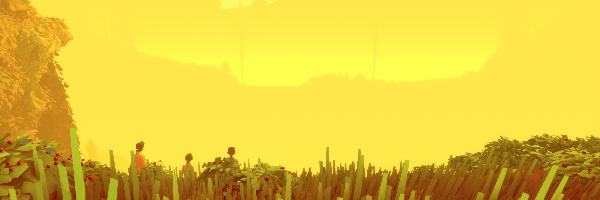

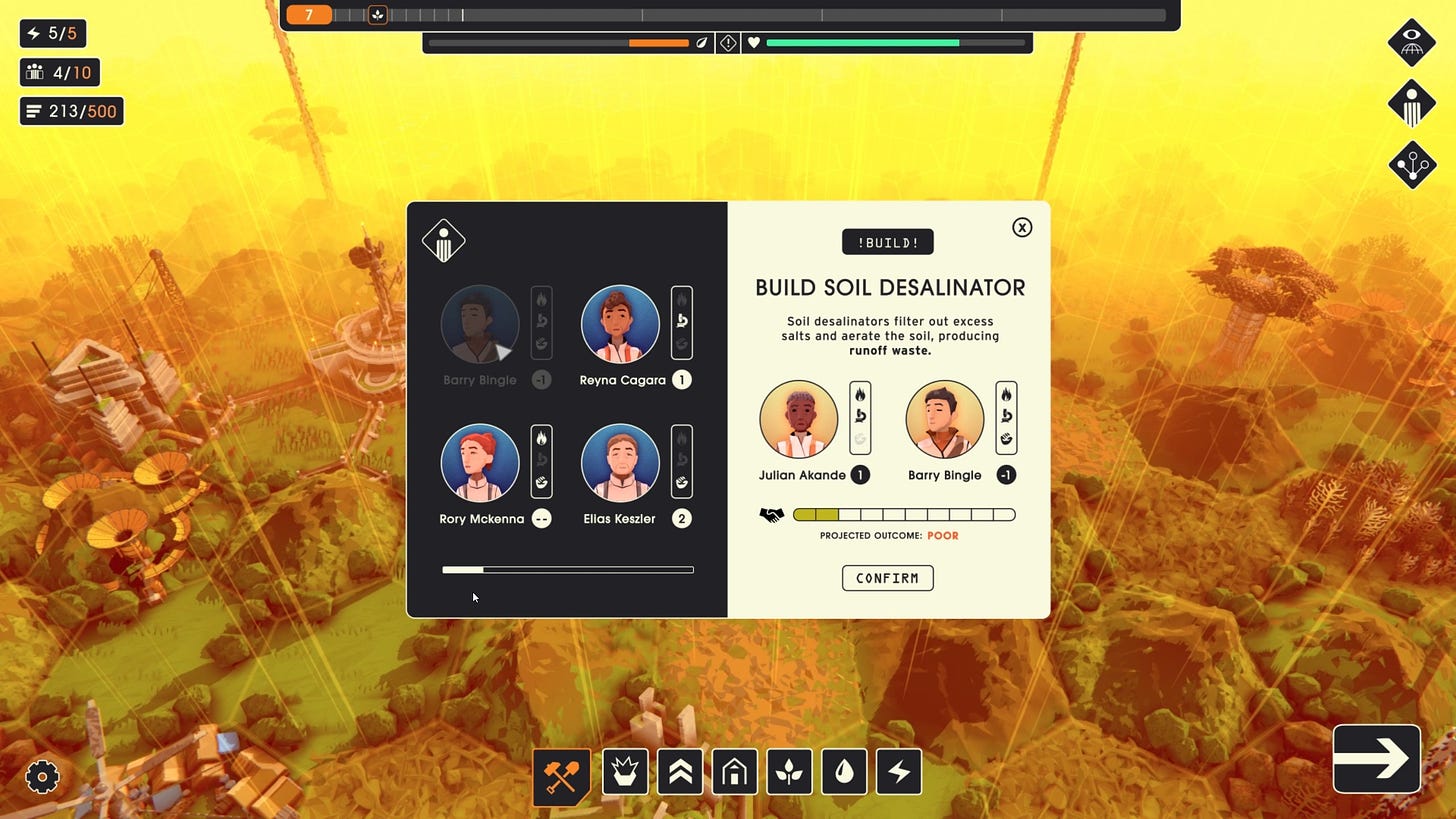
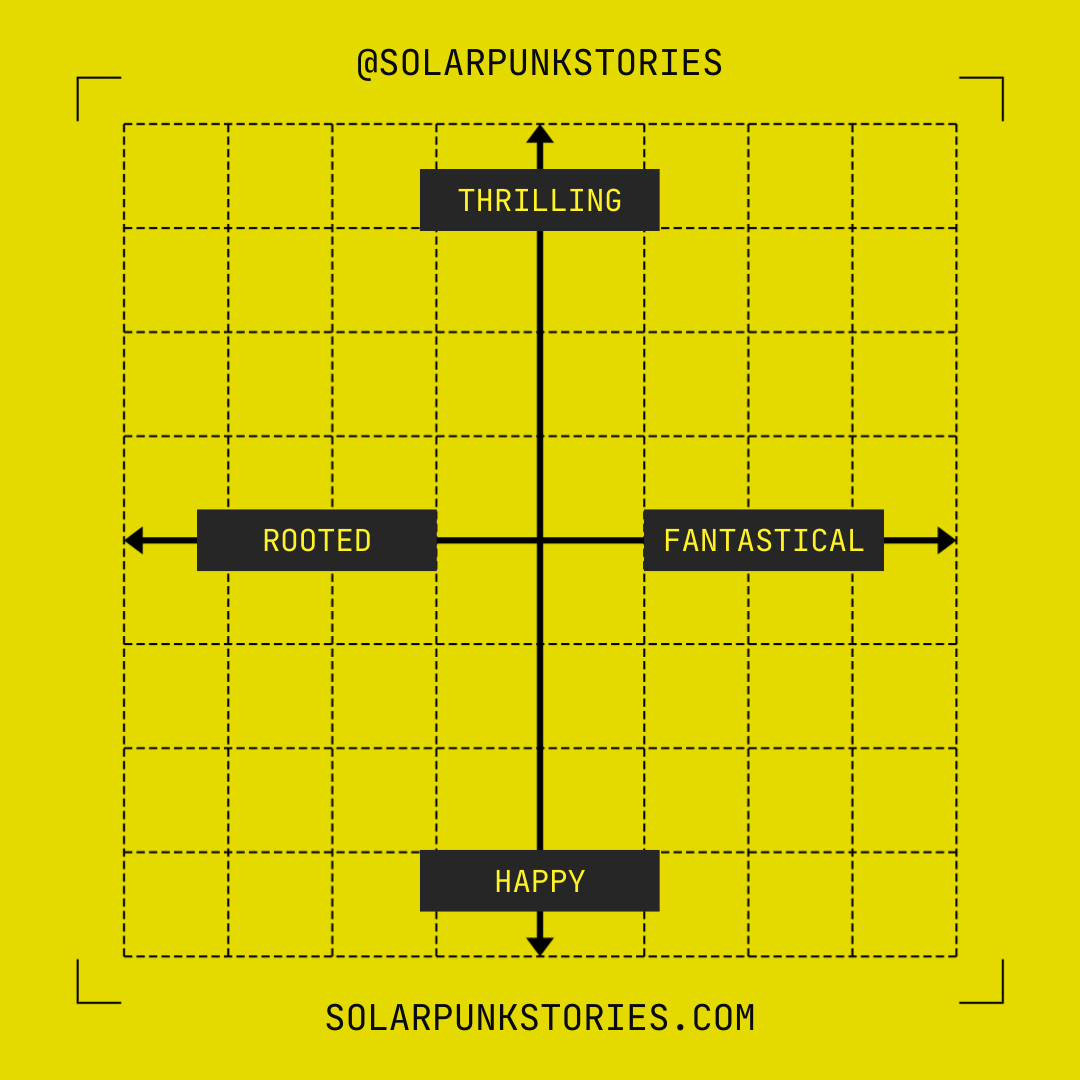
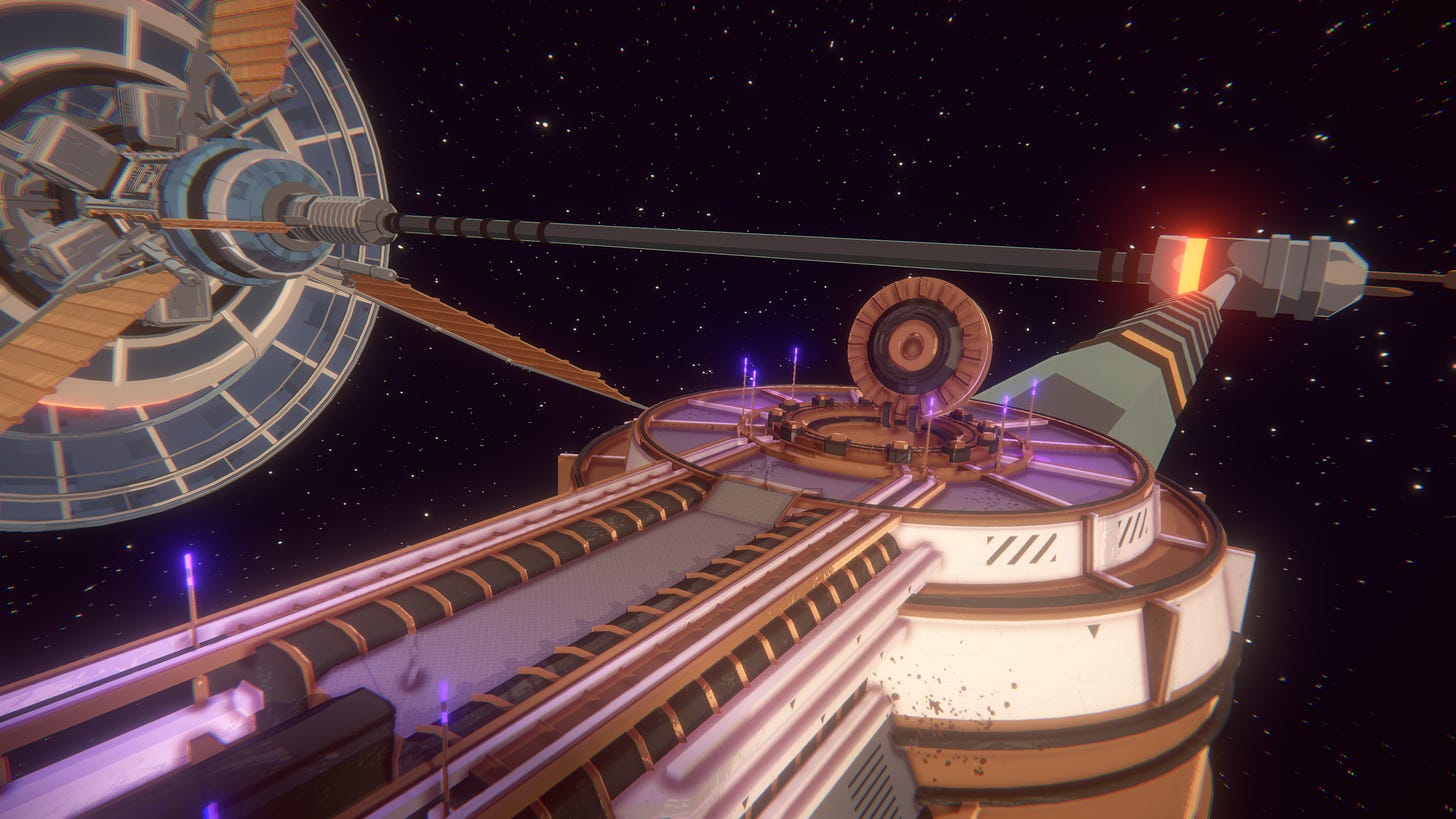
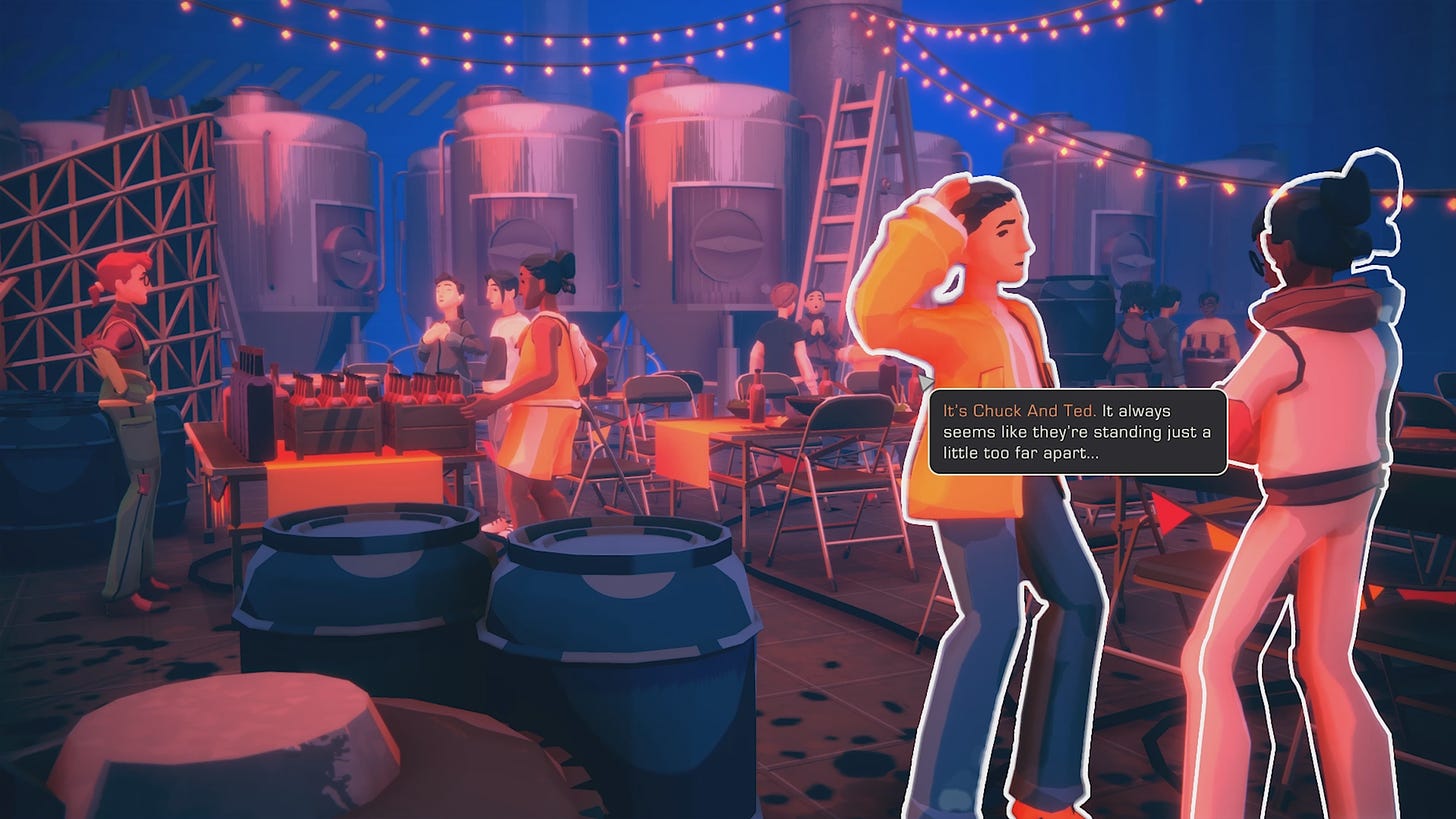
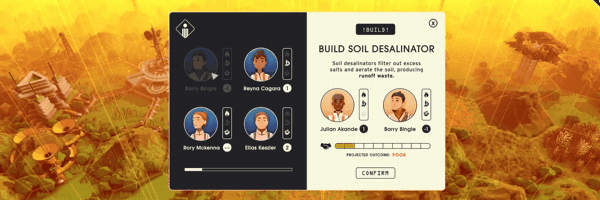
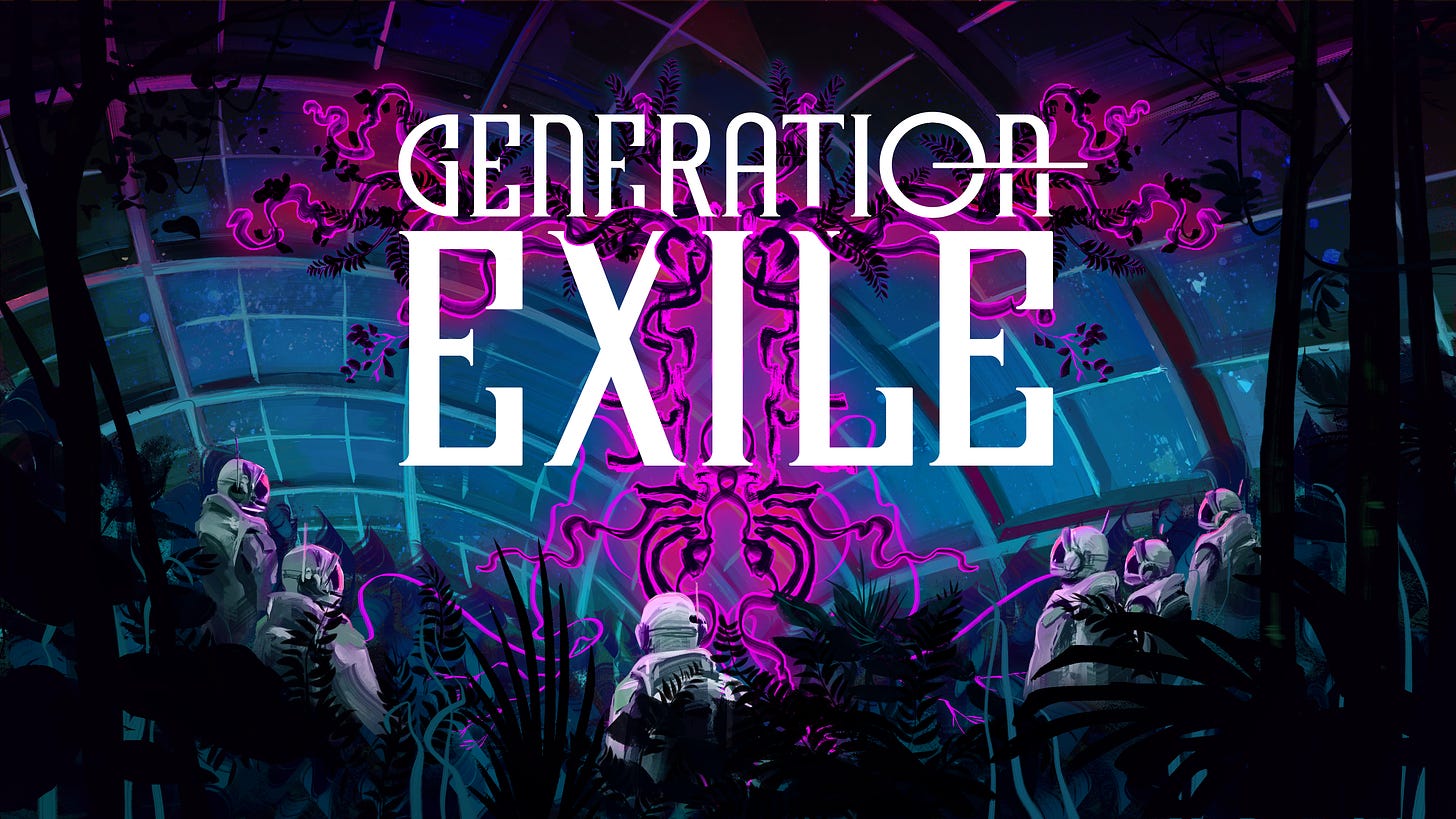
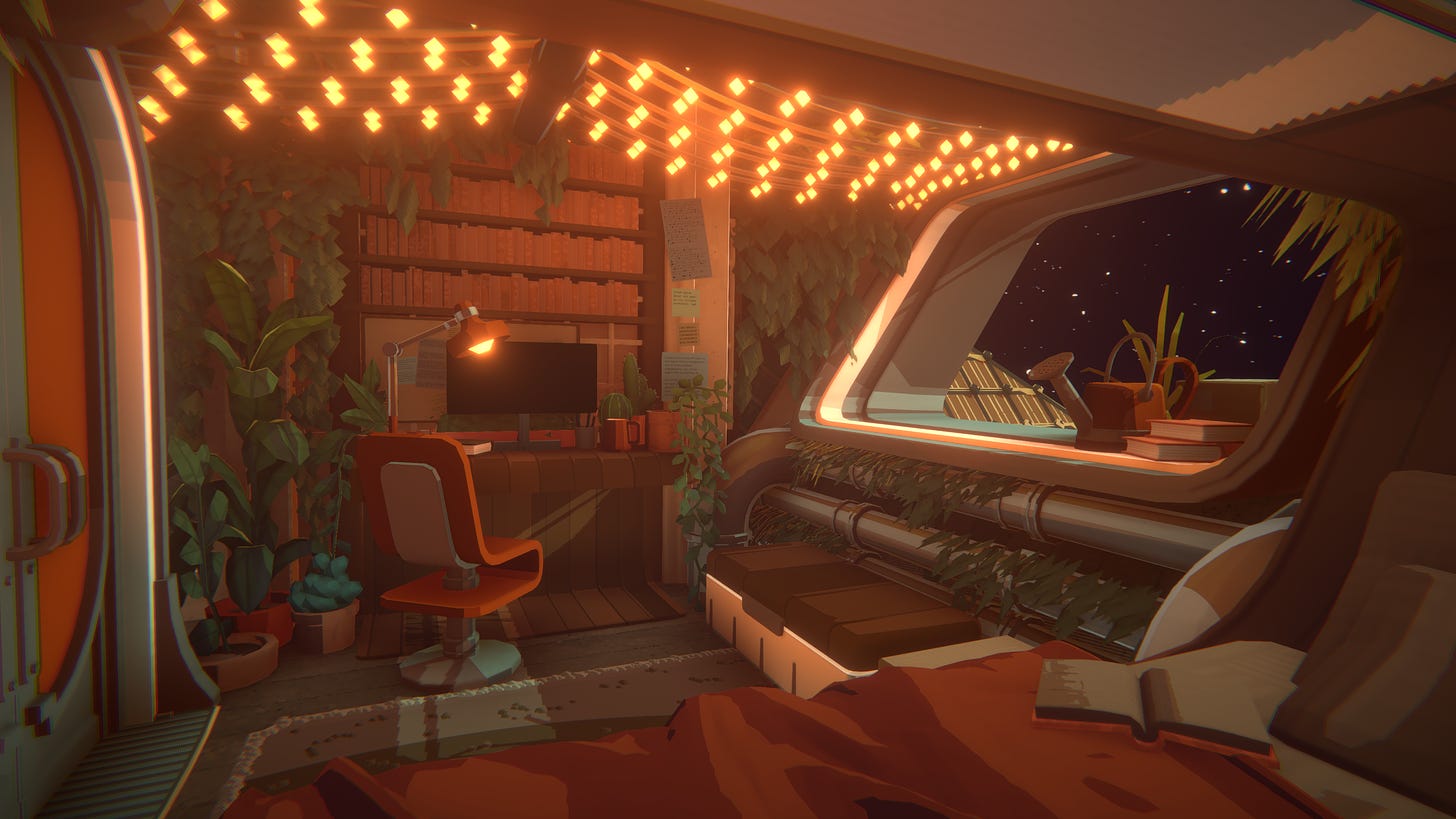
This sounds so exciting!! I can’t wait to play it and really dig into how these systems create a sustainable society.
I also really like the choice of bringing in the human-scale narrative of playing a single protagonist. I’ve noticed that solarpunk as a genre tends to be more broad-systems focused vs single protagonist focused in order to show that solving problems doesn’t ever rely on just one person, but I feel as a reader/audience it’s easier to be emotionally grounded when seeing things from a specific person’s perspective. I’m so excited to see how these mechanics work together!
Here’s an idea: An MMORPG inspired by Buckminster Fuller’s World Game (https://en.wikipedia.org/wiki/World_Game) where the goal is cooperative resource management as in Generation Exile. The subgoals would be world peace, keeping global warming below 1.5°, and eliminating poverty, while the roles would be data-driven diplomats. While I’m fairly sure that the idea goes against solarpunk’s decentralist, artsy ethos, I see no reason why it can’t be adapted to fit into the solarpunk movement